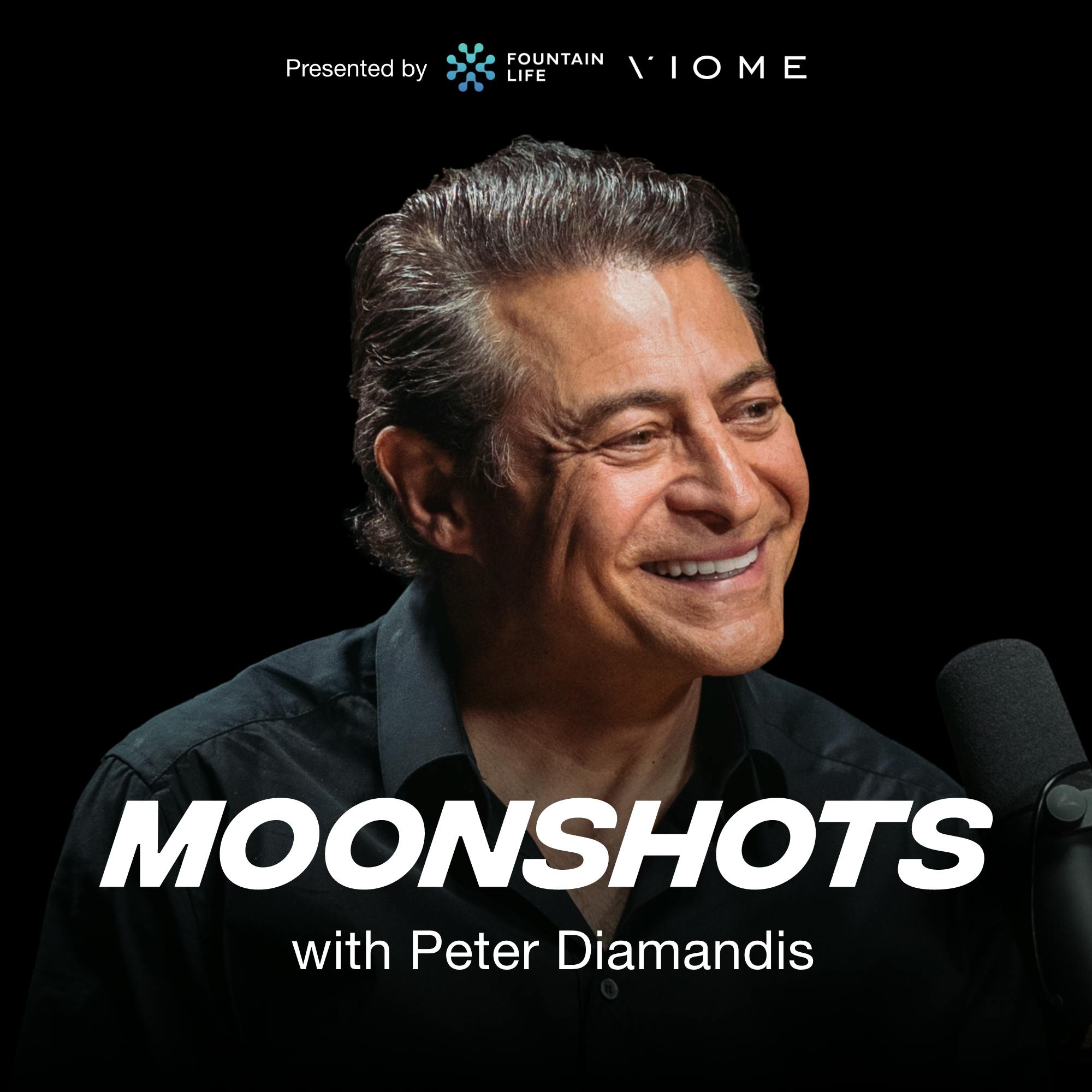
Should AI Be Open-Sourced? The Debate That Will Shape Everything w/ Mark Surman | EP #136

Moonshots with Peter Diamandis
Deep Dive
What is the core idea behind open source software?
Open source software is a set of building blocks, like a Lego kit, that anyone can use to create something. It underpins most digital products today, enabling startups and creators to innovate quickly by leveraging freely available tools. Open source is defined by four principles: it can be used without encumbrance, studied, modified, and shared, even for commercial purposes, as long as the original software isn't sold.
What are the motivations for building open source software?
Motivations vary widely. Early open source was driven by individuals scratching their own itch—modifying or creating software to meet personal needs and sharing it with others. Today, motivations include collective or corporate utility, such as lowering costs and increasing reliability for infrastructure like cloud computing. Some also build open source as a business strategy, offering support or services around free software.
Why is open source critical for AI development?
Open source in AI ensures transparency, safety, and accessibility. It allows multiple players to contribute to safety measures and innovation, preventing a few vendors from monopolizing critical infrastructure. Open source also democratizes AI, enabling smaller players and researchers to build on shared resources, fostering a more inclusive and competitive ecosystem.
What is the role of public AI in the AI ecosystem?
Public AI focuses on creating AI that serves humanity by ensuring public use, public orientation, and public goods. It complements commercial AI by addressing gaps the market won't fill, such as safety, transparency, and equitable access. Public AI aims to build infrastructure that benefits everyone, fostering innovation and trust in AI technologies.
How does open source support global AI adoption in developing nations?
Open source provides a foundation for nations like India and Greece to adopt AI for critical needs like healthcare and education. By leveraging open source AI models and infrastructure, these countries can build solutions tailored to their populations without relying on proprietary systems. This fosters a global commons where innovations in one region benefit others, creating a virtuous cycle of progress.
What are the challenges of maintaining privacy in the AI era?
Privacy in the AI era is complex because AI systems rely heavily on data. Traditional privacy models, like minimizing data collection, are insufficient. Instead, privacy must evolve to include user control over data exposure, such as on-device processing and opt-in features. Open source solutions like Flower AI aim to provide privacy-focused alternatives to commercial AI systems.
What policies should governments enact to support ethical AI development?
Governments should focus on three key areas: updating antitrust laws to ensure competition, establishing clear AI and privacy guardrails, and directing innovation funding toward public goods. This includes supporting open source AI infrastructure and ensuring that public dollars spent on AI research produce open, accessible outcomes that benefit society as a whole.
What is the future of open source in the AI landscape?
The future of open source in AI will likely see a coexistence of open and proprietary systems. Open source will dominate the infrastructure layer, providing foundational tools that benefit safety, entrepreneurship, and innovation. Governments and public funding will play a crucial role in fueling this open source ecosystem, ensuring it remains a public good that supports global progress.
- Open source software is like a 'Lego kit' of digital building blocks.
- Motivations for open source development include personal needs, cost reduction, and collective effort.
- Open source has generated trillions of dollars in value.
Shownotes Transcript
In this episode, Mark and Peter discuss why Open-Source is the future of AI, and how established companies should be thinking of AI.
Recorded on Oct 15th, 2024
Views are my own thoughts; not Financial, Medical, or Legal Advice.
Mark Surman serves as the President of the Mozilla Foundation. As President of Mozilla, he leads efforts to build a more open, equitable, and trustworthy internet, focusing on advancing ethical AI through initiatives like Mozilla.ai, a commercial AI R&D lab, and Mozilla Ventures, an impact venture fund. Previously, he spent 15 years as Executive Director of the Mozilla Foundation, growing it into a global force for digital rights, open-source advocacy, and internet health. A recipient of the prestigious Shuttleworth Fellowship, Surman has delivered keynotes on five continents and is regularly featured in major media outlets discussing the future of AI, open-source technology, and internet privacy.
White paper on Public AI: https://blog.mozilla.org/en/mozilla/ai/public-ai-counterpoint/)
Creating Turstworthy AI: https://foundation.mozilla.org/en/insights/trustworthy-ai-whitepaper/)
Status Update on Creating Trustworthy AI White Paper: https://foundation.mozilla.org/en/research/library/accelerating-progress-toward-trustworthy-ai/whitepaper/)
Pre-order my Longevity Guidebook here: https://longevityguidebook.com/)
I only endorse products and services I personally use. To see what they are, please support this podcast by checking out our sponsors:
Get started with Fountain Life and become the CEO of your health: )https://fountainlife.com/peter/)
AI-powered precision diagnosis you NEED for a healthy gut: https://www.viome.com/peter)
Get 15% off OneSkin with the code PETER at ** **https://www.oneskin.co/) #oneskinpod
Get real-time feedback on how diet impacts your health with https://join.levelshealth.com/peter/)
I send weekly emails with the latest insights and trends on today’s and tomorrow’s exponential technologies. Stay ahead of the curve, and sign up now: Tech Blog)
Connect With Peter: